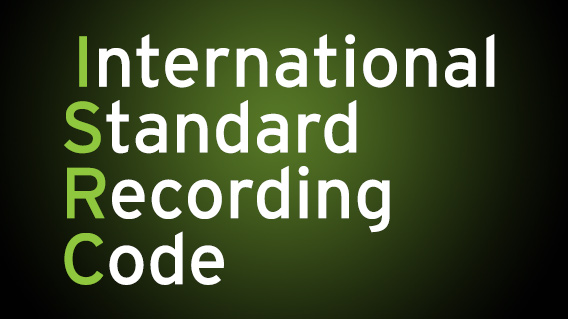 Birnam CD: Pressing Matters
Birnam CD: Pressing Matters
Martin was invited to contribute a guest article for the Traditional Music Forum blog. In the article he discussed what we at Birnam have found over recent years – that many musicians are choosing to release music themselves. With so many artists opting to release music independently, we wanted to share the article here to highlight that Birnam are ready to help them (you) every step of the way.
Birnam CD offers a comprehensive support service for musicians from CD pressing to digital delivery to PR and design. Managing Director Martin Hadden tells us more.
I found the title of an article in last month’s newsletter depressingly downbeat – ‘Ian Green and the Legacy of the Folk Label’. For me, the word ‘legacy’ suggests something which belongs in the past or, at the very least, something with not much of a future ahead of it.
Ian describes the impact on Greentrax Recordings of the recent downturn in CD sales in straightforward, honest terms. I would expect no less from a man whose reputation for honesty and integrity is second to none in the Scottish music scene. However, though I could certainly empathise with many of Ian’s comments, I also found some of his observations to be at odds with our own current experiences here at Birnam CD.
You see, as the record labels have been forced to cut back on the number of albums they release, an increasing number of artists have turned to releasing their albums independently. The vast majority of the artists we work for do this.
It’s an ill wind that blows nobody any good.
Whether they have previously been with a label or not, most are taking on the task for the first time and it is a steep learning curve. There’s an awful lot to be done once the recording is finished – designing the packaging, getting the albums pressed, registering the tracks to ensure payment is received for any airplay, securing the airplay in the first place, getting reviews, making sure that the albums are easy for folks to find and buy both physically and digitally.
The list is extensive and consists of all the things that any record label worth its salt would do for an artist to support a new album release.
In response to this, we have added to the range of what we can do for artists beyond designing, pressing and delivering the finished CDs. We’ve been doing that for a couple of decades now, but for the past few years we have also been offering media promotion, downloads and streaming, online sales via Amazon etc., physical distribution and any sort of promotional materials we are asked to produce.
The difference between us and a record company is that we ask for no rights to the recordings or to the music itself. All of those rights remain the property of the artists.
And as more folks have turned to us to help to make their music more widely available, our buying power with the CD pressing plants has increased. This, in turn, has allowed us to buck recent trends and significantly lower our prices for pressing CDs – which attracts more artists to come to us to get their albums pressed and to take us up on the other services we offer. For us, it’s proving to be a productive treadmill.
Here’s just one current example to illustrate how this trend is impacting on the scene:
The ‘long list’ of nominations for the 2015 ‘Album of the Year’ award at this year’s Trad Music Awards has just been announced. We produced nine of the twenty albums listed, and eight of these are independently released by the artists themselves. Being signed to a label is clearly no longer the perceived necessity it once was in order for creative musicians to succeed and to be recognised for their work.
I wonder if things are drifting back towards how they were a few decades ago. Getting a record deal is not so easy any more. Record labels, particularly the ‘specialist music’ labels, have to be a lot more careful these days about which albums they choose to release. The current habits of the music-buying public dictate that they can’t afford to take a chance on a new, upcoming artist as the investment required in doing so could take years to recoup – in fact, may never be recouped at all. It may be that artists will soon find themselves signing a record deal only when their music sales reach a point at which it becomes unmanageable for them to handle their recorded output on their own. Having reached that point, they are likely to find that they need the support of an established and experienced label to take on the administration and to handle the tasks required to keep on top of things.
In that sense, the act of securing a record deal may soon regain some of its former prestige and value as artists won’t be offered a contract unless, or until, they have clearly established a profile significant enough to offer the realistic prospect of selling an awful lot of albums across a range of different formats.
When I joined Silly Wizard in 1976, the band was already in the throes of disentangling itself from an existing record deal. In the following 12 years, until we split in 1988, we signed deals with 4 more labels in England and the USA. We were young, we were ill-advised and we made some poor decisions. People often contact me to ask how they can get hold of our earlier albums. Although I am now in the perfect position to make them available, there is little that I, or the rest of the band, can do about it as neither the albums, nor the music we created and committed to them, belong to us in any physical sense. We’re the Bay City Rollers of the folk scene.
If we had known then what we know now…Or if Ian Green had founded Greentrax about 5 or 6 years earlier than he did, we would have signed with Ian in a second and would never have regretted doing so. Of that, I am certain.
Wishful thinking aside, I think it is important that the current issues affecting the record labels should not be misinterpreted as necessarily being trouble for the music itself in the wider sense. People always have, and always will, make music – great music. The current Scottish music scene is in rude health. It’s bursting at the seams with some of the most skilful and innovative young performers and composers I have ever heard. In my opinion, having been involved in it for forty plus years now, the scene itself is more exciting, vibrant, inclusive and uplifting than ever before.
And, however it is released, the music is being more widely heard than ever before.
As with so many matters these days, being independent seems to be the sensible way forward.




 Birnam CD: Pressing Matters
Birnam CD: Pressing Matters